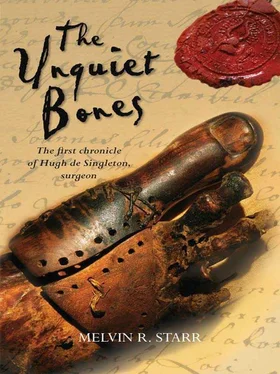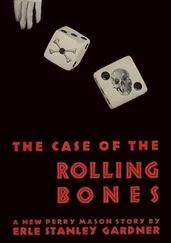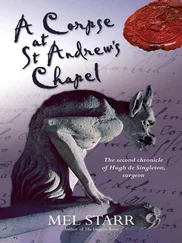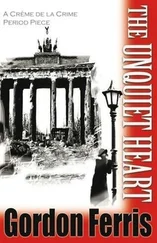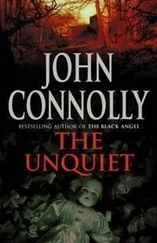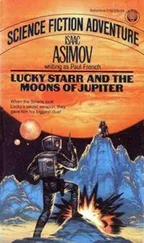Mel Starr - The Unquiet Bones
Здесь есть возможность читать онлайн «Mel Starr - The Unquiet Bones» весь текст электронной книги совершенно бесплатно (целиком полную версию без сокращений). В некоторых случаях можно слушать аудио, скачать через торрент в формате fb2 и присутствует краткое содержание. Год выпуска: 2008, Издательство: Kregel Publications, Жанр: Исторический детектив, на английском языке. Описание произведения, (предисловие) а так же отзывы посетителей доступны на портале библиотеки ЛибКат.
- Название:The Unquiet Bones
- Автор:
- Издательство:Kregel Publications
- Жанр:
- Год:2008
- ISBN:нет данных
- Рейтинг книги:4 / 5. Голосов: 1
-
Избранное:Добавить в избранное
- Отзывы:
-
Ваша оценка:
- 80
- 1
- 2
- 3
- 4
- 5
The Unquiet Bones: краткое содержание, описание и аннотация
Предлагаем к чтению аннотацию, описание, краткое содержание или предисловие (зависит от того, что написал сам автор книги «The Unquiet Bones»). Если вы не нашли необходимую информацию о книге — напишите в комментариях, мы постараемся отыскать её.
The Unquiet Bones — читать онлайн бесплатно полную книгу (весь текст) целиком
Ниже представлен текст книги, разбитый по страницам. Система сохранения места последней прочитанной страницы, позволяет с удобством читать онлайн бесплатно книгу «The Unquiet Bones», без необходимости каждый раз заново искать на чём Вы остановились. Поставьте закладку, и сможете в любой момент перейти на страницу, на которой закончили чтение.
Интервал:
Закладка:
I will spare you the particulars. She confirmed what she had told Edith, but had no more for me. It was clear from her glistening eyes and enthusiastic delivery that she wished she had. The daughter sat silent during the conversation; as quiet as her mother was voluble. I remember wondering at the time if she would remain so as the years passed, or if there was some curious work of nature that loosened a woman’s tongue about the time of the birth of her second child. I decided not, as I have known talkative women not yet wed, and a few — a few, mind you — silent to old age.
I managed to escape the wool merchant’s wife before the sun was over the church spire. I had two more visits to make this day: I must see the miller’s son, and ask Thomas Shilton about the gentleman who had attracted Margaret’s interest — and perhaps more.
I found the miller’s lad assisting his father. One glance, and a few minutes’ conversation, went far to explain Margaret’s lack of interest in the young man as a suitor. He was shaped like the barrels which contained the flour the Earl’s mill produced. He ate well, I decided, from the largesse he skimmed from the tenants who brought their grain to the mill to be ground. I explained that, many months earlier, Margaret and Thomas Shilton had been seen — and heard — arguing on the mill-side bank of the River Windrush. Had he heard them?
The youth glanced over his shoulder at the mill wheel. Its labored groans were accompanied by the sluicing of water off the wheel. “Not likely to hear much, workin’ about the mill,” he replied. Nor had he seen the couple at any time during the early summer.
The track leading back past the smithy to the bridge curved through thick gold and brown autumnal vegetation. The forge was invisible but for a wisp of smoke above the low trees. I heard Alard’s hammer ring but allowed Bruce to amble on toward the bridge. I decided I could learn no more on the north side of the river.
The hamlet of Shilton is but two miles south of Burford on the road to Bampton. I had ridden Bruce through its single street often enough in the preceding days that I might be considered a regular visitor. Always before I had continued on my way, but not this time. I saw a woman at the village well and asked of Thomas. She pointed me toward a house at the south end of the village.
“But you’ll not find ’im there,” she added. “He’s got the oxen for the day. He’ll be ploughin’ a furlong.”
Villagers in a place like Shilton leased strips of land in several locations surrounding the town. Together these parcels might amount to perhaps thirty acres: a yardland. I led Bruce to the appointed home and knocked at the door.
The house was one of the larger of its type in the hamlet. Like the rest, it was made of wattle and daub, with a thatched roof, but this one, unlike a few others in the village, was in good repair. At the rear, filling most of the toft, was a cultivated plot, now barren, which had evidently produced the year’s supply of carrots, cabbages, and turnips.
A woman in a flour-dusted apron answered my knock and directed me with pointed finger over the small rise at the southwest corner of the hamlet where, she said, I would find her husband and son and the team of oxen the villagers owned collectively.
I tied Bruce to a sapling and set off for the designated field. The ground was soft with recent rain, but not mud. Ideal for plowing. The two men looked my way as I crested the hill, but continued their work. The older man led the team, the younger held the plow expertly in the furrow. I met them at the end of the long, narrow field, where they would turn the team.
The field they plowed had been fallow. Sheep droppings indicated the use to which it had been put for the past year. Now the manure was being turned into the soil to improve the wheat which would be planted there in a few days.
“Are you Thomas?” I asked the younger man.
“Aye…as is he.” He nodded toward his father.
I introduced myself and my mission, and asked if he knew that Margaret, the smith’s daughter, had been buried in Burford churchyard the day before.
“Aye.” His eyes dropped to the freshly turned earth at his feet. “Knew of it.”
Thomas Shilton, the younger, was a large man, just grown to his full size, which was considerable. He was half a head taller than me, and heavier than Lord Gilbert. Twenty or so years of hard work and adequate food had produced a man of broad shoulders, strong arms and legs, and straight back. The stubble on his chin indicated that he was needing to shave more regularly now. His hair was fair, and matted in the wind which blew across the field.
“I am told that, early in the summer, you argued with Margaret on the banks of the River Windrush.”
“There, and other places,” he answered with a sardonic smile.
“You argued with Margaret often?”
“Aye. She were easy to dispute with.”
“Yet you wished to marry her, I am told.”
“I did,” he said softly.
“She had some, uh, other qualities?”
Tom smiled sheepishly, then said, “She forgot a dispute right readily.”
“You argued about another man, I was told.”
Tom seemed to think that, as I knew the source of their disagreement, my words required no comment. He stared at me, then studied the fresh earth at his feet once again.
“Who was it that caused your discord?”
“I do not know the man,” he replied with some heat.
“How is it that Margaret could be…uh…associated with someone you would not know?”
“He was not of this place.”
“From where, then? Burford?”
“Nay. She wouldn’t say. Farther, I think.”
“It is rumored that he was a gentleman.”
“So she said.”
“Did she think a gentleman would take up with a smith’s daughter?” I asked.
“’Tis what I asked her,” he replied, shifting his weight from one foot to the other.
“And what did she answer?”
“She laughed. Said as how I might find out.”
“How did you learn of this other fellow?”
“I’d been pressin’ her to have the bans read. She wouldn’t agree. Back about St George’s day she changed her mind. Said as we’d have the bans read soon…but by hocktide she’d turned cold again. Perhaps I pressed her overmuch. She told me I wasn’t the only man as wanted her. I knew that. But I told her she’d not do better than me. I’ll have my father’s yardland, an’ the Earl’s reeve has promised another soon’s I can pay the fine an’ the lease.”
“What did she reply to that?”
“Laughed at me. Said as how some men had many yardlands.”
“So you thought by that she meant a gentleman?”
“Not just then. I said as how I knew no one who had more than three yardlands. A man can’t work more’n that. She said as how some men needn’t work their own lands; have others do it for ’em.”
“That’s when you decided she spoke of a gentleman?”
“Aye. I told her she was a fool.” He looked away, across the unplowed portion of the field, and watched a flight of geese as it appeared over the bare-limbed oaks of the forest beyond. “That were a mistake,” he sighed.
“How so?”
“Margaret didn’t like to be told there was aught she couldn’t do.”
“Is that when the shouting began?”
“Shouting?” he questioned, brows furrowed like the field behind him.
“You were heard across the river.”
He smiled to himself once again. “Margaret could make herself heard some distance when she wished it.”
“When did you last see Margaret?”
“That were t’last time. She yelled somethin’ ’bout a gentleman always keeps his promise, an’ went off up t’riverbank to the smithy.”
Читать дальшеИнтервал:
Закладка:
Похожие книги на «The Unquiet Bones»
Представляем Вашему вниманию похожие книги на «The Unquiet Bones» списком для выбора. Мы отобрали схожую по названию и смыслу литературу в надежде предоставить читателям больше вариантов отыскать новые, интересные, ещё непрочитанные произведения.
Обсуждение, отзывы о книге «The Unquiet Bones» и просто собственные мнения читателей. Оставьте ваши комментарии, напишите, что Вы думаете о произведении, его смысле или главных героях. Укажите что конкретно понравилось, а что нет, и почему Вы так считаете.
